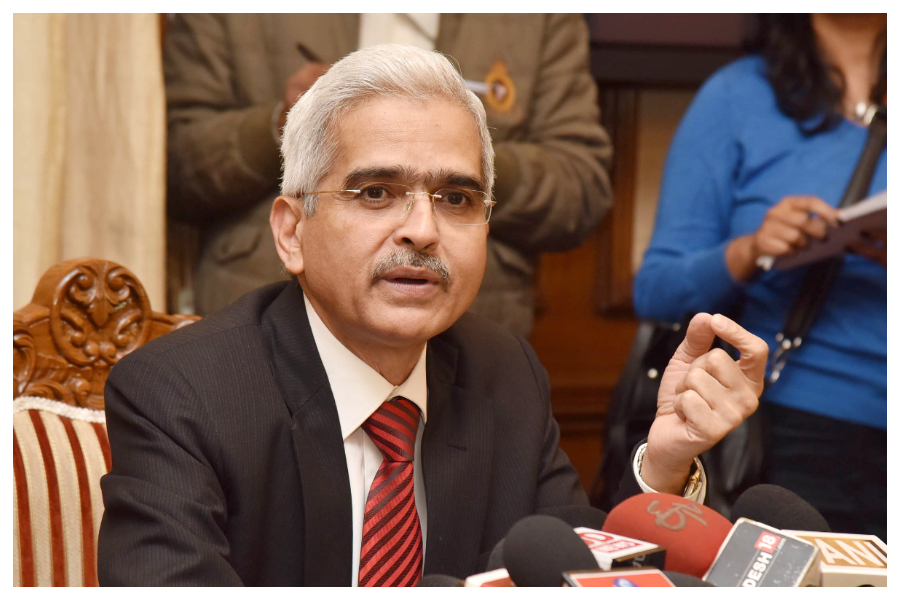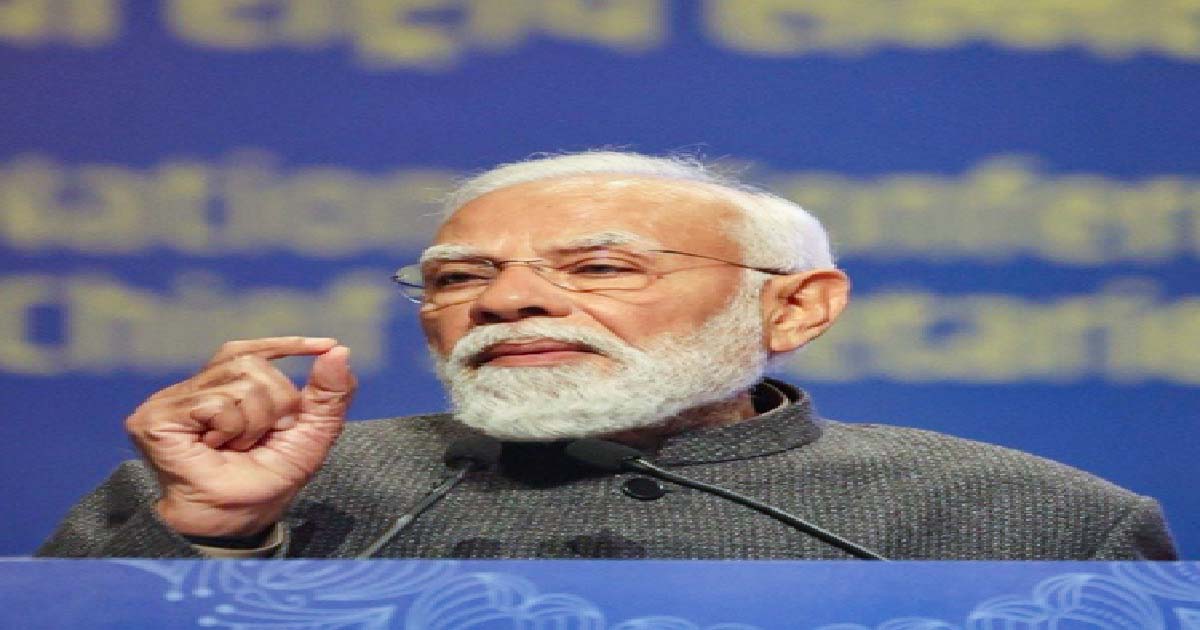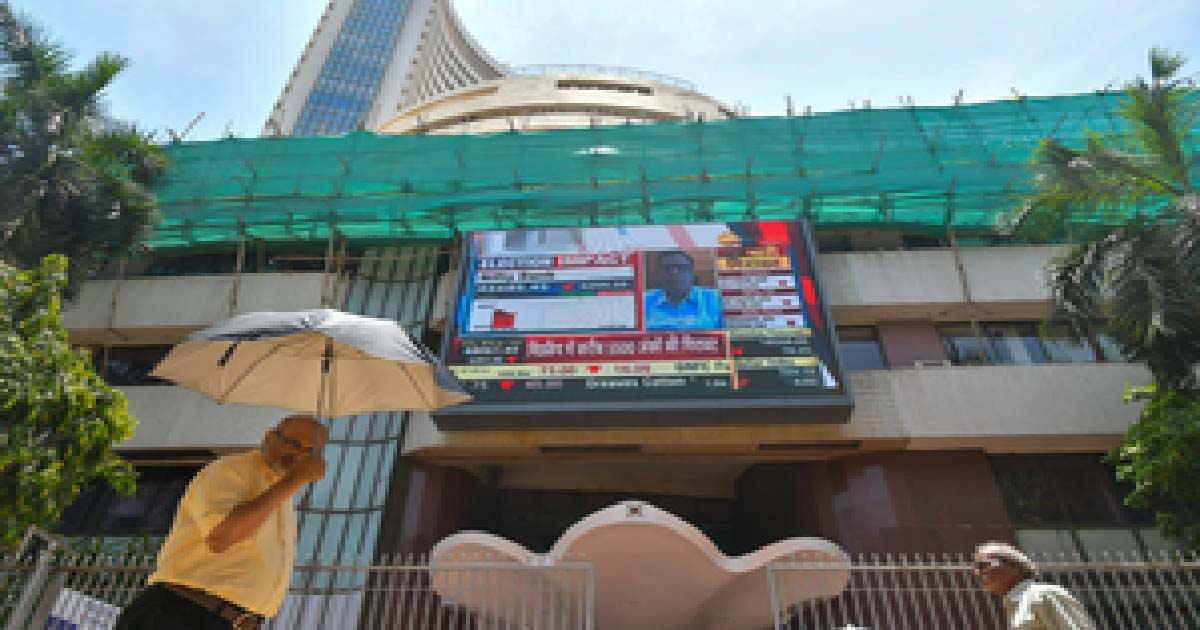Business
MPC members showed urgency to contain inflation: Emkay Global

The unanimous 50bps hike in the repo rate recently by the Monetary Policy Committee (MPC) and a sharp upward revision in the inflation forecast, depicted continued urgency on policy catch-up amid the MPC’s reassessment of the inflation outlook, said Emkay Global Financial Services in a report.
The minutes also indicated the rate trajectory ahead.
The RBI released the minutes of the MPC meeting held during June 6-8, 2022 on Wednesday.
According to Emkay Global, the broadening of inflation pressures and generalisation and persistence of inflation made most members uncomfortable, even though some reckoned the largely imported nature of the current inflation.
“Most members believed that, amid fears of second-round effects on estimates, an early hike was necessary to avoid any unintended economic shocks,” Emkay Global said.
The minutes also gave cues on the rate trajectory ahead. While all reckoned rates needed to go up further, there was still divergence on the possible terminal rate, the report said.
Prof Jayant Varma believed that the RBI MPC, like most leading central banks, should also provide a dot plot to signal its future rate projections, which will help in anchoring long-term bond markets and inflation expectations.
Dr Michael Debabrata Patra argued that the repo rate needs to be increased to at least as high as the one-year-ahead inflation forecast suggests (near zero), knowing that monetary policy works with lags.
According to Dr Ashima Goyal, the current stage of recovery, the one-year ahead real rate must not fall below -1 per cent, Emkay Global said.
Some members see a need for demand compression but recommend moving with caution
Emkay Global said there were signs of caution in terms of aggressive policy tightening. Dr. Patra suggested that current inflation is predominantly a supply-side issue, and as a consequence, for monetary policy, rather than materially compressing demand, managing expectations is the key.
Dr Goyal argued that, unlike the West, India’s inflation is yet neither demand-driven nor seeing a wage-price spiral. Labour markets are not tight and wage increases are not universal yet across rural and urban sectors.
Meanwhile, the credit offtake is still modest – broad money growth at 8.8 per cent was much lower than nominal income growth.
Dr Ranjan suggested continued monetary-fiscal coordination to anchor inflation expectations while RBI Governor Shaktikanta Das stated that the second-round effect of adverse supply shocks is what they are targeting.
According to Emkay Global, the triple whammy of commodity price shocks, supply-chain shocks and resilient growth has shifted the reaction function in favor of inflation containment.
The inflation prints of the next two quarters are likely to exceed seven per cent, which could pressure the RBI into acting sooner rather than later.
FY23 could, thus, see rates go up further by 75bps plus, with the RBI now showing its intent to keep real rates neutral or higher to quickly reach pre-Covid levels, it said.
As per Emkay Global, a maximum tightening of the policy rate by six per cent by FY23, of which liquidity tightening to two per cent of net demand and time liabilities (NDTL) is tantamount to another estimated 25bps effective rate hike.
However, the front-loaded rate hike cycle does not imply a lengthy tightening cycle, and once they reach the supposed neutral pre-Covid monetary conditions, the bar for further tightening may go higher incrementally amid increasing growth inflation trade-offs, Emkay Global said.
Business
Sensex, Nifty end flat amid mixed sectoral cues

Mumbai, Dec 30: Indian benchmark indices ended Tuesday’s session almost flat, but with a slight negative tone, as gains in PSU banks, metal and auto stocks were offset by selling pressure in IT, FMCG, realty and pharma shares.
The Sensex closed at 84,675.08, slipping 20.46 points or 0.02 per cent, while the Nifty settled marginally lower at 25,938.85, down 3.25 points or 0.01 per cent.
“The Nifty has also slipped below the 21 EMA, reinforcing the short-term downtrend. Immediate support is placed in the 25,850–25,870 zone,” market watchers stated.
“A decisive break below this level could intensify bearish sentiment, while resistance is placed at 26,000,” analysts mentioned.
Markets witnessed a cautious mood as investors balanced sector-specific buying against profit booking in select heavyweights.
On the Sensex, stocks such as Eternal, Infosys, Asian Paints, UltraTech Cement and Bajaj Finance ended among the top losers, weighing on the index.
On the other hand, M&M, Tata Steel, Bajaj Finserv and Axis Bank provided support and closed higher.
The broader market also saw mild weakness. The Nifty Midcap 100 index ended lower by 0.15 per cent, while the Nifty Smallcap 100 declined 0.28 per cent.
Sector-wise, real estate, IT and pharma stocks remained under pressure. The Nifty Realty index fell 0.84 per cent, while the Nifty IT and Pharma indices declined 0.74 per cent and 0.17 per cent, respectively.
In contrast, strong buying was seen in PSU bank, metal and auto stocks. The Nifty PSU Bank index jumped 1.69 per cent, the Nifty Metal index rose 2.03 per cent, and the Nifty Auto index gained 1.08 per cent.
Analysts said that the market ended the day on a flat note as investors preferred selective buying, with sectoral trends driving movement rather than broad-based participation.
“Fresh buying at lower levels, along with short covering in banking, auto, and metal stocks following the expiry of monthly derivative contracts, helped the Nifty recoup most of its intraday losses and close the session largely flat,” market watchers mentioned.
Business
From labour laws to market reforms, India’s growth story built on credibility and stability: PM Modi

New Delhi, Dec 30: Prime Minister Narendra Modi on Tuesday said that India’s growth story is being shaped by credibility, stability, and long-term confidence, driven by a series of sustained reforms across sectors ranging from labour laws and trade agreements to logistics, energy, and market reforms.
In a post on X, the Prime Minister referred to Union Minister Hardeep Singh Puri’s write-up on “Reform Express 2025”, which reflects the “quiet but consistent work of governance that has helped clear long-pending bottlenecks week after week”.
PM Modi said these steady reforms are laying a strong foundation for India’s future growth.
“Union Minister Hardeep Singh Puri writes on Reform Express 2025. He reflects on the quiet, cumulative work of governance that cleared bottlenecks week after week,” he said.
“From labour laws and trade agreements to logistics, energy and market reforms, India’s growth story is being built on credibility, stability and long-term confidence,” he added.
In his article, Union Petroleum and Natural Gas Minister Puri highlighted how the PM Modi government’s reform push is improving ease of doing business and strengthening investor confidence.
Puri had described “Reform Express 2025” as the cumulative impact of consistent governance, where obstacles are addressed regularly rather than through sudden, disruptive changes.
He had said that in an uncertain global environment marked by political instability, the steady leadership of Narendra Modi stands out.
Puri had pointed out that key steps such as modern labour codes, major trade agreements, the Securities Market Code Bill and the Indian Ports Act 2025 are creating a solid base for long-term economic expansion.
He also said that the SHANTI Bill is a major step towards modernising India’s civil nuclear framework.
According to the minister, these reforms follow a clear pattern of cleaning up outdated laws, decriminalising minor offences, modernising labour compliance, strengthening market oversight, digitising trade processes, improving logistics, and reducing risks in long-term energy investments.
Business
Sensex, Nifty trade flat amid mixed global cues

Mumbai, Dec 29: Indian benchmark indices traded flat with a mild positive bias early on Monday, tracking mixed global cues and subdued year-end participation.
As of 9.30 am, Sensex moved up 40 points, or 0.04 per cent to 85,081 and Nifty gained 14 points, or 0.05 per cent to 26,057.
Main broad-cap indices performed in line with benchmark indices, with the Nifty Midcap 100 advanced 0.14 per cent, while the Nifty Smallcap 100 added 0.18 per cent.
Tech Mahindra, Tata Steel and NTPC were among the major gainers in the Nifty Pack, while losers included Bajaj Finserv, Axis Bank, Bajaj Finance and Tata Consumer.
Among sectoral gainers, the Nifty Metal index was the top performer, rising 1.11 per cent, followed by Nifty Auto and Nifty Realty, which gained 0.26 per cent and 0.25 per cent, respectively.
According to analysts, immediate support is placed at 25,850–25,900 zone, while 26,150–26,200 remains a crucial resistance band. Stable crude prices and a relatively steady rupee continue to offer underlying support, preventing sharp downside.
They further said that underperformance of India compared to most developed and emerging markets in 2025 is set to change in 2026 as Indian macros are in the ‘Goldilocks’ zone, with robust economic growth and recovery in earnings from Q3 FY26.
However, these factors are not enough to spark a rally soon, market watchers said. The market needs a US-India trade deal with positive surprises for India to rebound. A consolidation phase is likely in the near term in the absence of such surprises, they added.
Asia-Pacific markets traded mixed in the morning session, as investors kicked off the final trading week of the year.
In Asian markets, China’s Shanghai index advanced 0.31 per cent, and Shenzhen edged up 0.03 per cent, Japan’s Nikkei lost 0.31 per cent, while Hong Kong’s Hang Seng Index gained 0.39 per cent. South Korea’s Kospi added 1.52 per cent.
The US markets ended in the red zone on the last trading day, as Nasdaq lost 0.09 per cent, the S&P 500 eased 0.03 per cent, and the Dow moved down 0.04 per cent.
On December 26, foreign institutional investors (FIIs) sold equities worth Rs 317 crore, while domestic institutional investors (DIIs) were net buyers of equities worth Rs 1,772 crore.
-

 Crime3 years ago
Crime3 years agoClass 10 student jumps to death in Jaipur
-

 Maharashtra1 year ago
Maharashtra1 year agoMumbai Local Train Update: Central Railway’s New Timetable Comes Into Effect; Check Full List Of Revised Timings & Stations
-

 Maharashtra1 year ago
Maharashtra1 year agoMumbai To Go Toll-Free Tonight! Maharashtra Govt Announces Complete Toll Waiver For Light Motor Vehicles At All 5 Entry Points Of City
-

 Maharashtra1 year ago
Maharashtra1 year agoFalse photo of Imtiaz Jaleel’s rally, exposing the fooling conspiracy
-

 National News1 year ago
National News1 year agoMinistry of Railways rolls out Special Drive 4.0 with focus on digitisation, cleanliness, inclusiveness and grievance redressal
-

 Maharashtra1 year ago
Maharashtra1 year agoMaharashtra Elections 2024: Mumbai Metro & BEST Services Extended Till Midnight On Voting Day
-

 National News1 year ago
National News1 year agoJ&K: 4 Jawans Killed, 28 Injured After Bus Carrying BSF Personnel For Poll Duty Falls Into Gorge In Budgam; Terrifying Visuals Surface
-

 Crime1 year ago
Crime1 year agoBaba Siddique Murder: Mumbai Police Unable To Get Lawrence Bishnoi Custody Due To Home Ministry Order, Says Report












